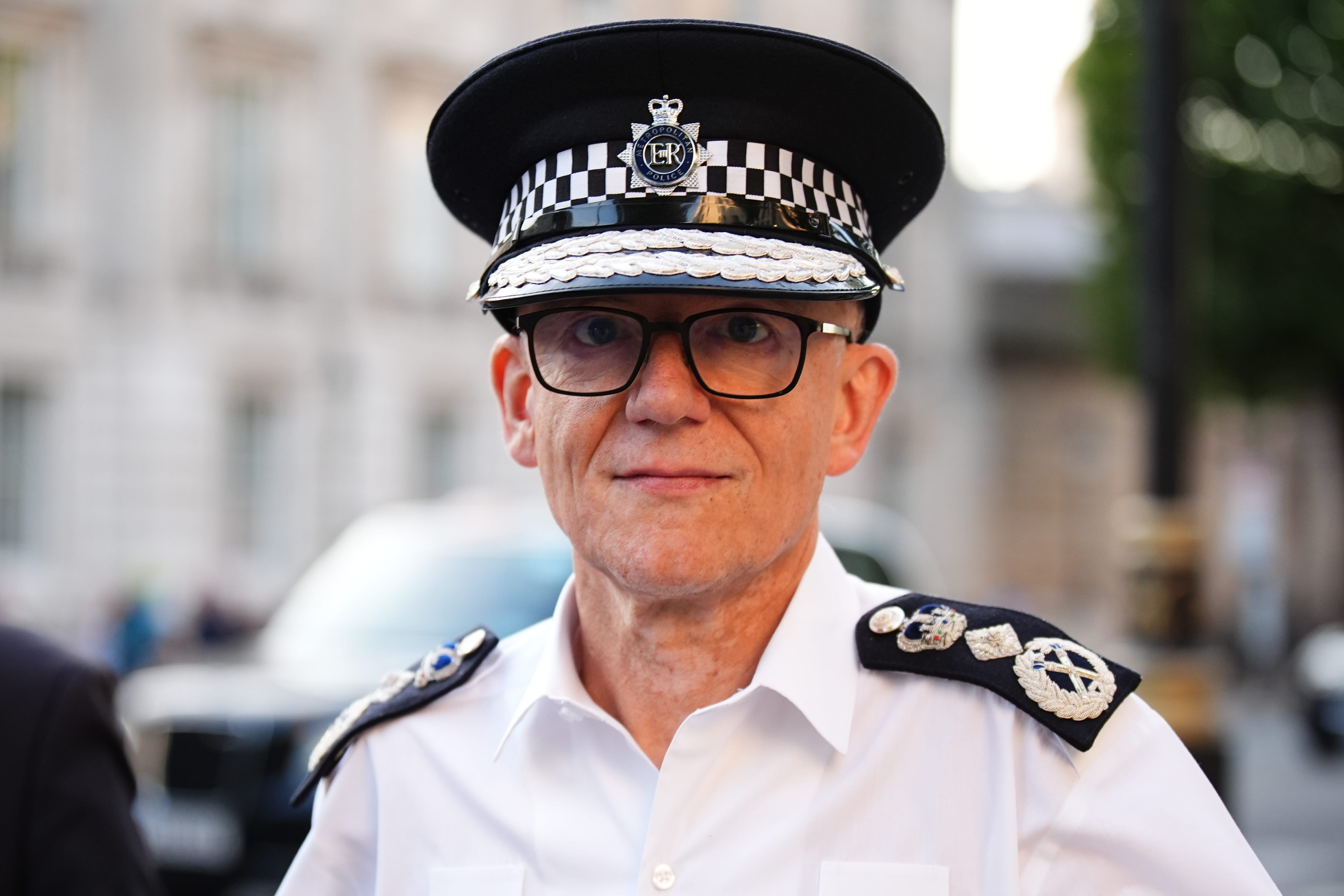Northern Ireland-style policing of protests an alternative model, says Met chief
The force has come under fire in the past year over its policing of pro-Palestine protests, as well as accusations of two-tier policing.

Your support helps us to tell the story
From reproductive rights to climate change to Big Tech, The Independent is on the ground when the story is developing. Whether it's investigating the financials of Elon Musk's pro-Trump PAC or producing our latest documentary, 'The A Word', which shines a light on the American women fighting for reproductive rights, we know how important it is to parse out the facts from the messaging.
At such a critical moment in US history, we need reporters on the ground. Your donation allows us to keep sending journalists to speak to both sides of the story.
The Independent is trusted by Americans across the entire political spectrum. And unlike many other quality news outlets, we choose not to lock Americans out of our reporting and analysis with paywalls. We believe quality journalism should be available to everyone, paid for by those who can afford it.
Your support makes all the difference.Metropolitan Police chief Sir Mark Rowley has highlighted Northern Ireland-style policing of protests as an alternative to how demonstrations are policed.
The force has come under fire in the past year over its policing of pro-Palestine protests, as well as accusations of two-tier policing from the left and the right.
Last April, Sir Mark faced calls to resign over video footage of an interaction between a Jewish man and a police officer during a pro-Palestine protest.
In an interview with the Sunday Telegraph, Sir Mark discussed the laws around protest, saying Parliament has “generally taken quite a permissive approach to protest”, before highlighting the different approach in Northern Ireland.
He said: “The presumption is that protests will take place, other than in very specific circumstances where the risk of serious violence is beyond what the police can control.”
The Sunday Telegraph reported that he went on to suggest that there are “alternative models in operation in other jurisdictions” including within the UK.
“In Northern Ireland, for example, because of the specific history of parades and marches taking place in divided communities, there is a whole separate legal framework with a Parades Commission that takes account of the effect of those events on communities and tries to strike a different balance,” he said.
However, he said the different ways to approach protest laws “are a matter for Parliament to consider, not the police”.